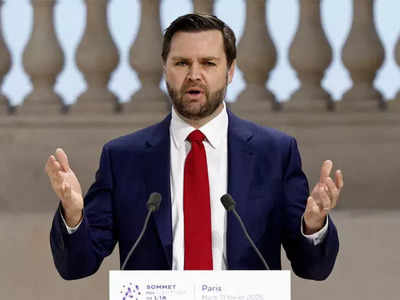In a scene that has captured international attention, the chairman of the Munich Security Conference, Christoph Heusgen, was visibly moved to tears during the closing remarks of the 61st MSC event. This emotional display followed a speech by US Vice President JD Vance, in which he delivered a scathing critique of European leaders, likening them to Communist ‘Commissars’ and questioning the decline of free speech in Europe.
Vance’s speech on Friday provoked a significant emotional reaction from attendees, including Heusgen, who has served as MSC chairman since 2022. The conference, traditionally a platform for dialogue between transatlantic allies, experienced a moment of palpable tension as Heusgen reflected on the impact of Vance’s words. “With (convenor of the MSC) Ewald von Kleist, this conference started as a transatlantic conference, but after the speech by Vice President Vance on Friday, we must fear that our common value base is not so common anymore,” Heusgen remarked, his voice breaking with emotion.
This incident comes at a time when US-European relations are under strain, with Vance’s address highlighting deep-seated concerns regarding freedom of speech, political correctness, and the handling of migration policies within the European Union. His comments have sparked wider debate on the shared values and priorities between the US and Europe, particularly in the context of ongoing geopolitical tensions.
The emotional response from Heusgen, who is typically known for his composed demeanour, underscores the seriousness with which European leaders are taking the criticisms from across the Atlantic. Social media reactions have been swift, with some questioning the stability and credibility of current European governance, while others have pointed out the irony of European leaders’ past reactions to US political figures, particularly former President Donald Trump’s warnings about reliance on Russian energy.
The Munich Security Conference, traditionally a forum for fostering cooperation, has thus become a focal point for illustrating the current frictions in US-Europe relations. As the conference concluded, the incident left many reflecting on the future of transatlantic alliances and the unity of democratic values that once seemed unshakeable.
The implications of Vance’s speech, coupled with Heusgen’s emotional reaction, continue to ripple through political circles, with discussions now centred not only on the critique of European leadership but also on the broader consequences for international security and cooperation. As the world watches, the incident at the MSC serves as a poignant reminder of the challenges ahead in maintaining a united front against global threats.







